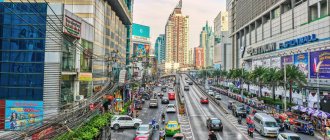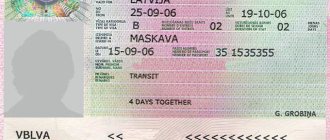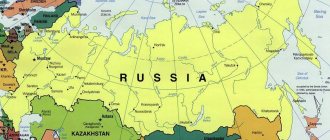For Russian people, life in Brazil means snow-white sandy beaches, the Amazon jungle, Rio de Janeiro carnivals and football... Today, there are many reasons for moving to Brazil: from beautiful nature to the friendliness and hospitality of the local residents. So it seems at first glance.
We will tell you in this article how things really stand for our compatriots who have decided to leave for permanent residence in the country of eternal summer. Let's consider all the possible pros and cons of living in Brazil, as well as legal ways to immigrate to this country.
Attractiveness of the country for immigrants
In addition to the incredible beauty of this Latin American state, Russians are attracted by the climate. This is especially true for our compatriots living in the northern part of the country.
Also attractive for people considering moving to the country will be free education and medicine, as well as good ecology. Among other things, there is virtually no racism in Brazil. And some of our compatriots talk about the prospects of opening their own business.
After several years of residence in the territory of the Brazilian state, an immigrant can apply for citizenship status. And with a Brazilian passport, you can travel to almost all Latin American countries without a visa. It also gives the right to Portuguese citizenship within two years of receiving a Brazilian passport .
Details
Obtaining a residence permit in Brazil
The chance to live in the state on a permanent basis is provided by documentation such as a residence permit.
Conditions for issuing a residence permit:
- entering into a marriage with a Brazilian citizen;
- be the parent of a child born in the state;
- be an investor;
- be a rich person of retirement age or a member of his family;
- be in the status of a researcher or a higher education teacher who has been invited to Brazil;
- benefit the state;
- residence in Brazil for more than four years, and on absolutely legal grounds.
Each of the conditions will be implemented according to different scenarios. All that remains is to choose the plan that is most suitable for you and start implementing it.
Sample Brazilian Citizen Passport
Brazilian wedding - must take place on Brazilian territory.
Entering the state as a traveler, and then, having official documentation, submitting an application for a residence permit as the other half of a local resident. The procedure is quite slow given the existing bureaucracy in Brazil. For this reason, it is important to remember the “pitfalls”: staying in the state in a visa-free regime is allowed for no more than ninety days, after which you will have to travel abroad for the same period. It seems like a small thing, but! It is possible to issue a residence permit on the basis of marriage after one year of Brazilian life. If you leave for more than one month at a time, or in total the days of absence amount to more than three months, then this period will be reset to zero. There is only one way out - to get a visa to the Russian Federation.
But its type can already be determined from your goals - tourism, education or another option based on your own considerations. The period will undoubtedly be limited. But you will definitely be able to live peacefully for a year. After marriage and registration of a residence permit, after several years of living together, there is a chance to obtain Brazilian citizenship.
Study or work
There should be no problems when entering a university. Work is more difficult. Potential employers are generally in no hurry to line up for foreign personnel. Where problems do not arise is in science, where teachers and scientific specialists are in demand.
There are areas where the level of local education or qualifications is not enough: oil production, medicine and all industry. To get a positive decision, you will have to enter the state and live here, negotiating with the prospective employer. After completing the formalities in Brazil, you can start applying for a work visa. You will need to leave Brazil and send an application to the embassy with all documentation. The visa is issued for a period of 2 years, after which it can be extended for the same period. Then it is possible to obtain a Residence Permit. Applicants are issued a visa for the entire period of study. During this long period, it is possible not only to graduate from this educational institution, but also to understand for yourself whether you are comfortable in Brazil for future permanent residence.
Retire to the tropics
An excellent variation for those people of retirement age whose income every month is more than six thousand reais. Upon presentation of evidentiary facts about the validity and legality of the profit, you will need to first obtain a pension visa, and then a residence permit. And it's quite simple. Financial inflows from abroad always attract approval from the authorities. Together with the pensioner, members of his family also have the right to receive the same.
It is recognized that a minimum amount can guarantee a decent life for a person of retirement age, but also for a couple of his household members.
Investment or management
The easiest way to move to Brazil for permanent residence is to make a financial contribution to its economic area. The minimum amount is one hundred fifty thousand reais. Projects must guarantee the development of a particular industry, the creation of new jobs or technologies, etc.
The requirements for the newly created foreign organization in Brazil are slightly different. If its founder made a contribution at the minimum level, then during the 3 years for which he was issued a residence permit, he must create ten vacant positions in his own company for the local population. You can avoid this if you increase the size of the deposit four times. A residence permit will be issued to the person who will appear as the head of the company.
The conditions are simple and complex at the same time. But those who don’t take risks don’t drink champagne. Good luck!
Pros and cons of emigrating from Russia to Brazil
The standard of living in Brazil is much lower than in Western Europe. Although this is the largest and most developed state in South America, about 65% of the population live so poorly that they even save on the education of their children.
But thanks to the eternal summer and cheap natural food, life in Brazil is quite comfortable. Let's consider all the advantages and disadvantages of moving to this country.
Pros of living in Brazil:
- Tropical climate and everything that follows from this: there is no need to insulate the living space, buy warm clothes for yourself and winter tires for the wheels; there is no corrosion on the car caused by reagents on the roads; there is no vitamin deficiency and winter blues, thanks to the abundance of cheap fruits and vegetables.
- Excellent ecology and magnificent natural landscape with many beaches, nature reserves and waterfalls. You can engage in extreme sports.
- All food products in this country are of high quality and low price.
- Free medical care.
- Free education (including higher education) and a large number of private schools. At the same time, higher education is of a fairly high level.
- Unlike the countries of the European Union and the United States, diplomas from Russian universities are highly valued in Brazil.
- Possibility of obtaining permanent residence through naturalization after four years of legal residence in the country.
- The prospect of starting your own business in many areas of business.
- No racism.
- A developed system of social assistance from the state for different categories of people: pensioners, disabled people and parents with many children.
- An excellent opportunity for domestic tourism. For residents of this country, flights across the continent are cheap.
- Lack of bureaucracy typical of the former republics of the Soviet Union (registration and registration at the place of residence).

Disadvantages of living in Brazil:
- Low wages. The average salary ranges from $700 to $1,300 depending on the region. Another unpleasant fact is that women earn about 30% less than men for the same job.
- It is difficult to get a well-paid job, since it is not customary to hire workers from “outside”; family ties and nepotism are valued here. Qualifications or work experience are not particularly important for employers here - you need to be a highly sought-after qualified specialist for employment. To successfully get a job in Brazil, it is necessary to have a high level of knowledge of Portuguese or English.
- In the big cities of Brazil, there are high real estate prices (both buying and renting) and a high cost of living, incommensurate with salaries. For example, living in Rio is more expensive than in Moscow.
- Despite the fact that real estate here is much cheaper compared to North America and Europe, the post-purchase tax for foreigners is four times higher than for Brazilians. Therefore, in this country it is profitable to obtain citizenship after just a few years of residence.
- High crime rate. Even during the day it is dangerous in the slums, especially for people of European appearance.
- Free medicine is of low quality, and the services of good paid clinics and hospitals are expensive.
- Free secondary education is not of a very high level. Most Brazilians send their children to private schools.
- Not everyone is suited to the constant heat and tropical climate.
- A large number of various living creatures: toads, spiders, lizards, ants that crawl into houses.
- Moving to Brazil for permanent residence is quite difficult due to strict immigration laws. The surest way is to become an investor, but doing so is very expensive. Read about this and other ways to move to the country below.

In general, the pros and cons of living in Brazil are the same as in all Latin American countries. And before moving there for good, it’s better to spend several months there as a tourist, to see how compatriots live in Brazil.
This is not difficult to do, because Russians can live in the republic for 90 days without the need for a visa .
Note. In a metropolis, you can rent a one-room apartment in a residential area for 500-600 US dollars.
Wedding in Brazil
To do this, you will have to not only find a life partner from the country of your dreams, but also enter into a legal marriage with him. This must be done in Brazil. To do this, you will have to enter the country as a tourist, fortunately in 2021 you do not need a visa. And only then, having an official document in hand, submit an application for a residence permit as the spouse of a local resident. The process is not quick, especially considering the level of Brazilian bureaucracy. Therefore, it is worth remembering several pitfalls.
You can stay in the country without a visa for no more than 90 days, and then you will have to leave for no less than the same period. It would seem that there is nothing wrong. There is, however, one “but”. The fact is that you can get a residence permit based on marriage after a year of living in Brazil. And if you leave her for more than a month at a time, or if the sum of the days of absence is more than three months, then this period is reset to zero.
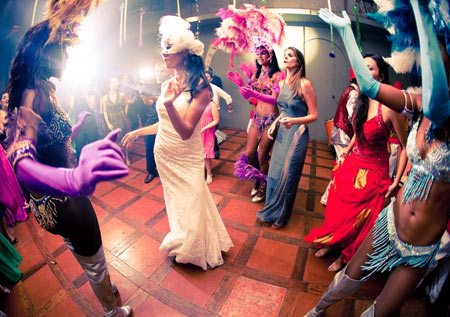
A way out of this situation may be to obtain a Brazilian visa in advance, while still in Russia. You can decide whether it will be a tourist trip, a student trip or something else based on your personal circumstances. In this case, although the time spent in the country will be limited, it will still allow you to live without leaving for a year. After getting married and obtaining a residence permit, after a few years of marriage, you can obtain Brazilian citizenship.
Russian diaspora
Brazil is the largest state in South America, but despite this, the Russian diaspora is significantly smaller in size than the same community in Argentina. The first Russian immigrants appeared here after the revolution in 1917. Their descendants still live in the republic.
The Russian diasporas in Brazil are scattered, so it is difficult to say their exact number. It is believed that about 35 thousand Russian immigrants live in the republic. Most of them are concentrated in Sao Paulo and Rio de Janeiro. Quite large communities are located in Pernambuco, Goiaz and Parana.

In Brazil there is a Brazilian-Russian university and a Center for Slavic Culture. One church of the Russian Orthodox Church was built in Niteroi and Rio de Janeiro. And in Sao Paulo there are six Orthodox churches and two cultural and charitable centers . Thanks to religious and cultural centers, the Russian diaspora still preserves its national culture.
General information. First steps
To eliminate false ideas in your head, you need to avoid information from advertising, and, for example, read reviews.
Since selecting a state for immigration and permanent residence is a serious matter. When all the theory is collected, you can go to the land of dreams yourself. But there is nothing complicated about this, since there is no visa requirement for Russian travelers to enter Brazil. The main thing is to include knowledge in addition to relaxation as the purpose of travel - “trying on” the state for yourself. Study how people with the same income level live, visit all areas - both prosperous and disadvantaged, purchase a food basket in local supermarkets, travel on municipal transport.
Communication with the indigenous population will help form an objective picture of the standard of living in Brazil. Despite the fact that their roots come from the European part, today's Brazilians are still the result of mixing different ethnic groups. The specifics of local culture are often obscure and pleasant to foreigners. To conduct conversations you will have to learn Portuguese. International English is not in demand far from tourist areas.
Methods and conditions for obtaining permanent residence
There are several legal ways to settle in this country. Let's talk about the most popular of them.
By origin
This is the rarest case. To move to Brazil based on descent, you must provide documentary evidence that you are a direct descendant of Brazilians. This option is also possible for a foreign child whose guardians are citizens of the republic.
Employment
It is possible to get a job in Brazil, but it is advisable that you have a specialty that is in demand, otherwise it will not be easy to get the desired position. After all, in order to obtain a permit for a foreigner, the employer will also have to prove that among the local specialists there is no employee suitable for this position.
Note. There is work for Russians in Brazil. Jobs in the field of information technology and medicine are always open to qualified specialists. Livestock breeders, translators, technicians, engineers and sales representatives are also in demand.
A residence permit on a work visa is issued for two years. This permit can then be extended for another two years.
Immigration to Brazil for investors
This option is suitable for businessmen with a starting capital of 100 thousand dollars. By opening your own business and investing money in the Brazilian economy, you can obtain permanent residence .
And one more condition - you must provide jobs in your company to at least ten representatives of the local population. Three years are given to implement this.
Family immigration
This method involves family reunification or marriage. So, if you have close relatives in Brazil, you can apply for a residence permit.
If you marry a citizen of this country, you can apply for permanent residence status in just one year (before that you will have to apply for a long-term visa).
Provided that the marriage is not fictitious (this is carefully checked), concluded in Brazil and the spouse lives together.
Rentier visa
This way you can obtain permanent residence without getting a job. This program is usually used by retirees and their families.
It is necessary to purchase housing and have a stable monthly income (official rental housing) or accumulated savings.
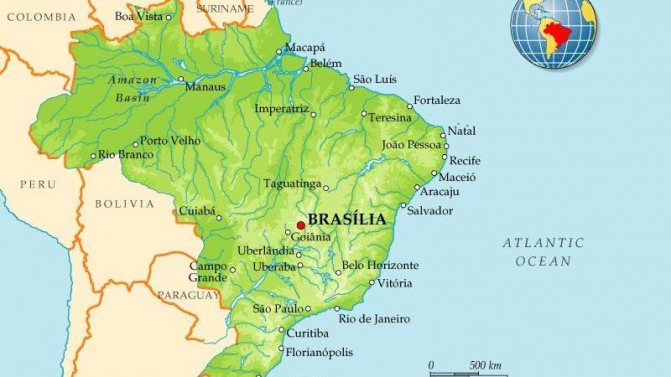
Required documents
To obtain a residence permit, you must provide the following documents :
- application in a unified form;
- international passport;
- birth certificate;
- long-term lease or purchase agreement for real estate;
- certificate of no criminal record;
- two standard photographs;
- receipt of payment of the duty.
This is a general package of documents for all categories of immigrants. Depending on the reason for the move, you will additionally need to provide several more documents.
For employment:
- employer documents with information about him;
- contract with the employer, signed by both parties, indicating dates, specialty and salary.
For marriage:
- marriage certificate;
- documents of the second spouse;
- declaration of cohabitation signed by both spouses.
To reunite with family:
- invitation from relatives and information about them;
- documents confirming the presence of family ties;
- a certificate stating that the receiving party has sufficient funds to support the visiting relative.
Pensioners must provide a pension certificate. They will also be required to provide a certificate of existing savings or monthly income outside the country.
For investors:
- a business plan, which will indicate the amount of planned investments, as well as ways to organize jobs;
- company registration documents;
- certificate of registration with the tax service.

Immigration for permanent residence (VIPER) for Russians
The basic visa package is the same as for VITEM, the document requirements and features for minors are similar. Fee is $200 for any option.
Additionally, they provide confirmation that the applicant is provided with a place of residence in Brazil.
The following categories are eligible for VIPER:
- Persons arriving in Brazil for family reunification. These are close relatives and dependents of a Brazilian citizen or a person with a VIPER visa. It is necessary to provide documents confirming closely related relationships. The Brazilian relative will be required to have a copy of their passport or ID and a written commitment to provide reception, accommodation and maintenance for visitors.
- Newlyweds are persons who have entered into an official marriage or are in a recognized partnership with Brazilian citizens. They initially enter on a tourist or visitor visa and are granted a temporary residence permit. Immigration authorities will openly and secretly check several times whether the couple really lives in a family union, or whether a fictitious marriage has been identified that has become a cover for illegal entry. The procedure will take about a year, after which permanent residence will be issued.
- Wealthy pensioners are older people whose official pension allows them to rent housing and cover living expenses for themselves and those supported by them. It is believed that 6,000 reais is enough for a pensioner with two dependents. Plus R$2,000 for the third and each subsequent dependent.
- Heads of religious and public organizations - upon confirmation of status. The procedure is similar to VITEM-VII.
- Investors who invest more than R$150,000 in the Brazilian economy through opening a company or purchasing an existing business that creates 10 jobs. If the investment is more than R$600,000, then the requirements for jobs are waived.
- The management team of international companies with branches or joint ventures in Brazil, which are transferred due to organizational and production needs.
- Prominent figures or highly qualified specialists in demand in Brazil.
Categories 1, 2, 3 and 4 apply for permanent residence on their own. For categories 5, 6, 7, registration of permanent residence is initiated by the Brazilian side.
In Brazil, when you apply, you will be asked what kind of prenuptial agreement you want to sign. This procedure is required. There are three types of marriage contract in Brazil: Comunhão total de bens / comunhão universal de bens - all property of the spouses acquired before and after marriage is divided equally between them. Comunhão parcial de bens - all property acquired by the spouses before marriage remains in their possession and is not divided between them; All property acquired after marriage is divided equally. Separação total de bens - property acquired by spouses before and after marriage is not divided between them.
Natalia Agiar
https://www.vbrazilii.ru/2016/03/brak-s-grazhdaninom-brazilii.html
Video: Brazil, another country
Obtaining citizenship on the basis of permanent residence
You can obtain Brazilian citizenship while living with permanent residence in the following cases :
- Through family reunification. Children, parents, spouses can move in with their close Brazilian relative. Citizenship can be obtained in this way by living in the territory of the republic for four years without leaving the country.
- Through marriage with a citizen of the country. Permanent residence is issued one year after marriage, and you can apply for citizenship after four years of permanent residence in Brazil.
- Being an investor. Having invested 100 thousand dollars in the Brazilian economy, a businessman receives permanent residence, and after three years he can apply for citizenship of this country.
Attention! Brazilian law allows dual citizenship. Once you receive a Brazilian passport, you will not have to give up your Russian one.
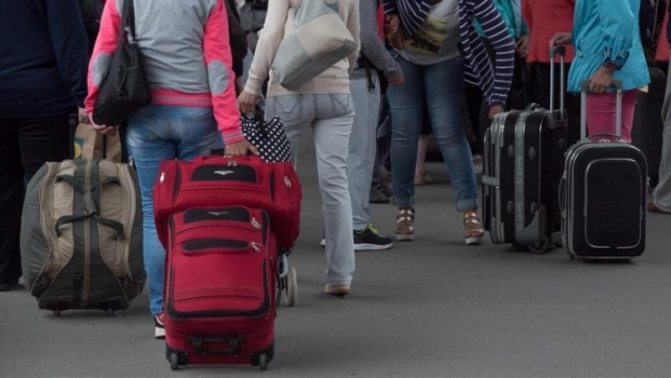
Obtaining a residence permit in Brazil
The ability to permanently reside in the country is provided by a document such as a residence permit. But in order to obtain a residence permit, foreigners must satisfy one of the following conditions:
- marry a Brazilian citizen;
- be the parent of a child born in the country;
- become an investor;
- be a wealthy pensioner or a member of his family;
- be a researcher or higher education teacher invited to Brazil;
- have special services to the country;
- live in Brazil for more than 4 years, and it is absolutely legal.
In each of these cases, immigration to Brazil will follow a different scenario. All that remains is to choose the right one and start implementing it. Let's look at the most common options.
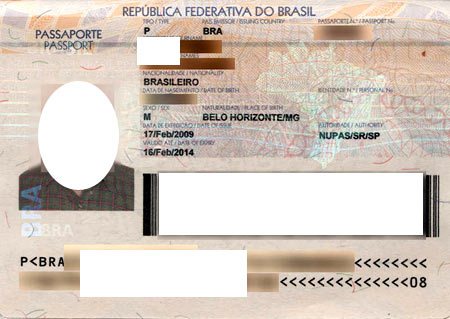
Sample Brazilian Citizen Passport
Required documents
To obtain a residence permit, you must contact the Federal Police department and submit:
- a copy of the international passport (copies of the cover and all pages, including blank ones, are taken), certified by a notary;
- questionnaire (the prescribed form is available on the Federal Police website);
- certificate of no criminal record (valid for 90 days);
- 2 photos;
- fee payment receipt;
- document on financial solvency (certificate from the bank, copy of a valid bank card);
- document confirming the emergence of the right to obtain a residence permit (marriage certificate,
Tourists from Russia have the right to stay in the country for 90 days without a visa; the period of stay can be extended.
Note! Upon acceptance of documents, the period of stay in Brazil increases by another 180 days!
How it all began…
To leave a job, of course, you must first get one.
I started working at CROC in 2005, while in my last year. We had a “Cisco Networking Academy” at our university, I took a basic course there (CCNA), IT companies also applied there, looking for young employees with basic knowledge of network technologies. I went to work as an engineer on duty for Cisco technical support. Received requests from clients, troubleshooted problems - replaced broken equipment, updated software, helped set up equipment, or looked for reasons for its incorrect operation. A year later, I moved to the implementation group, where I was involved in the design and configuration of equipment. The tasks were different, and I especially remember those in which it was necessary to work in atypical conditions: setting up equipment at an outside temperature of -30° C or changing a heavy router at four in the morning.
I also remember a case when one of the customers had a neglected network that included programmable machines, several default gateways in each VLAN, several subnets in one VLAN, static routes added to desktops from the command line, static routes configured using domain policies... At the same time, the company worked 24/7, so it was impossible to simply come on a day off, turn everything off and configure it from scratch, and a harsh customer even kicked out one of my predecessors, who allowed a little downtime in his work. Therefore, it was necessary to develop a plan of small steps, gradually reconnecting. All this was reminiscent of the Japanese game “Mikado” or “Jenga” - you had to carefully remove the elements, and at the same time make sure that the overall structure did not collapse. It wasn’t easy, but I had a ready answer to HR’s favorite question: “What project are you proud of?”
There were also many business trips - this is always interesting, however, at first I saw almost nothing, but then I began to plan things better and managed to see both cities and nature. But at some point I burned out. Perhaps this is due to early employment - I did not have time to collect my thoughts and justify to myself why and why I am doing what I am doing. It was 2015, I had been working at CROC for 10 years and at some point I realized that I was tired, I wanted something new - and to understand myself better. Therefore, I warned the manager a month and a half in advance, gradually transferred the affairs and left. We said goodbye warmly, and the boss said that I could come back if I was interested.
How can a Russian engineer find a job in Uruguay?

Handsome! At first I worked at the reception desk in a hostel: I helped guests settle in and find the right places in the city, and in the evenings I cleaned up. For this I could live in a separate room and have breakfast for free. I prepared lunch and dinner for myself, often from what was left in the refrigerator by guests who had already left. The difference compared to the work of an engineer, of course, is felt - people came to me in a good mood, telling me how fun they were having a rest, but they usually come to an engineer when “everything is bad” and “they need it urgently.”
Three months later, the hostel closed, and I decided to look for a job in my specialty. After writing a resume in Spanish, I sent it out, went to six interviews, received three offers, and eventually got a job as a network architect in a local free economic zone. This is a “business park” of warehouses and offices in which foreign companies rented space to save on taxes. We provided tenants with Internet access, I maintained and developed the local data network. By the way, at that moment I needed to restore CROC’s corporate email in order to transfer some account to my personal mailbox - and they allowed me to do this, which pleasantly surprised me.
In general, in Uruguay there is a shortage of qualified personnel in almost all areas; many good professionals leave for better living conditions in Spain. When applying for a job, I was not asked complex technical questions, since there was simply no one to ask them; there were no specialists working in similar positions in the company. In such situations (when one programmer, accountant or network architect is needed), it is, of course, difficult for the employer to assess the candidate’s competencies. In CROC it is simpler in this regard; if there are five engineers in a team, then the most experienced of them will interview the sixth and ask him difficult questions in his specialty. In general, during my work, I noted that in Russia, technical specialists are primarily looking for strong hard skills. That is, if a person is gloomy, difficult to communicate, but knows and is able to do a lot in his specialty, and is able to design and configure everything, then you can turn a blind eye to his character. In Uruguay, it’s the other way around - the main thing is that it’s pleasant to communicate with you, since comfortable business communication motivates you to work better and look for a solution, even if you can’t figure it out right away. Corporate rules are also “company”. Many Uruguayan offices have a tradition of eating baked goods on Friday mornings. Every Thursday, a person in charge is appointed, who at seven in the morning on Friday goes to the bakery and buys pastries for everyone.

A bucket of croissants, please!
Another pleasant thing - in Uruguay, according to the law, there are not 12, but 14 salaries per year. The thirteenth is awarded for the New Year, and the fourteenth is paid when you take a vacation - that is, vacation pay is not part of the salary, but a separate payment. And so - the level of salaries in Russia and Uruguay is approximately the same.
On a curious note, at work, among other things, I helped maintain street wi-fi. In the spring, bird nests appeared at almost every access point. Red stove-makers (Horneros) built their houses there from clay and grass: apparently, they were attracted by the warmth from the working equipment.
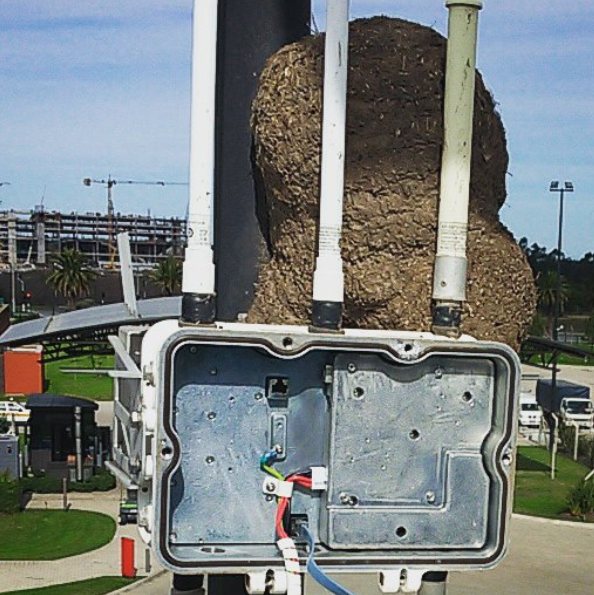
It takes a pair of birds about 2 weeks to build such a nest.
The sad thing is that in Uruguay there are many people with low motivation to work. It seems to me that this is due to the fact that social elevators in the country do not work well. The vast majority of people receive the same education and get the same level of work as their parents, be it a housekeeper or a department manager in an international company. And so from generation to generation - the poor come to terms with their social status, and the wealthy do not worry about their future and do not feel competition.
Although there is something we could learn from the Uruguayans. For example, the culture of carnivals is not necessarily “like in Brazil” (I didn’t find them, and judging by the stories, this is too much for me), it can also be “like in Uruguay”. Carnival is a time when it is considered normal to dress up in something bright and crazy, spontaneously play musical instruments and dance in the streets. In Uruguay there are a lot of people singing and playing drums at the intersections, passers-by can stop, dance and go on with their business. In the nineties, we had raves and rock festivals in the open air center, but then this culture disappeared. There is a need for something like this; it could be felt during the World Cup.

Carnival in Uruguay
Products
Groceries basket for one person for a week - 200 reais (3,500 rubles)
Brazil is an agricultural country, and this is immediately noticeable in the quality of local products. Everything costs less, but there are no problems with fresh fruits and vegetables, meat, as at farmers' markets in Russia. Groceries can be bought in large supermarkets, and local produce fairs are often held in all areas. There are bakeries and small shops near the house, but prices there are usually 20% higher.
Fruits grow here almost above your head, so they are very cheap
For a basket of groceries for one person you will have to spend from 200 reais (3,500 rubles) per week. A kilogram of beef will cost 20-30 reais (350-520 rubles), bread - 5-10 reais (87-175 rubles), a package of cereals or pasta - about 8 reais (140 rubles). Fruits grow here almost above your head, so they are very cheap. A kilogram of bananas can be found for 1.5 reais (26 rubles); mangoes and limes, which are simply called lemons here, will cost a little more. Potatoes don’t grow in Brazil, it’s too hot for them, so it’s a rather expensive product here. And local root crops - cassava, yams, cassava - cost about real (17 rubles) per kilogram. You don’t have to buy water; locals drink straight from the tap. By law, all catering establishments, shops, and gas stations must provide filtered water for visitors, because you can die from dehydration in the heat.
Housing
Rent a small studio - from 700 reais per month (12,200 rubles)
There are about nine favelas in Rio, they stretch from Copacabana beach to the center of Governor's Island, where the international airport is located. Locals know the rules of conduct there well. For example, cars don't even stop at red lights. In favelas there is no organized crime in the Russian sense; it is chaotic here. Passers-by are attacked by young guys who don’t know how to read or write, but somewhere they got a gun and learned to drive a scooter. For some reason, locals often do not carry their phones in their pockets, but rather tuck them into the waistband of their shorts. And then two people run up to such a person, one holds his hands, and the second quickly grabs the phone. There are also problems with drug trafficking. They are trying to do something about this. For several years now, martial law has been introduced in the city, and the police began to constantly patrol some areas. But still, not a single person coming to Rio would think of looking for housing in favelas.
There are elite areas here too. The most prestigious is Barra de Tijuca, a relatively new area built after the 80s. It is located in the very south and is separated from the main part of the city and the famous beaches by a tunnel that is cut through the mountain. Mostly those who have recently become rich live there: athletes, TV series stars, and from there President Bolsonaro himself. Everything is organized differently there: there are good shops, expensive establishments, and most importantly, it’s safe. Apartments here will cost at least 400 thousand reais (7 million rubles). But many houses have a swimming pool and a place where you can barbecue, and sometimes even a fitness room and sauna.
A small studio can be rented for 700 reais (12,200 rubles) per month
A small studio can be rented for 700 reais (12,200 rubles) per month, and the price will increase depending on the proximity of the metro and the level of the area. Larger apartments are rented for 2 thousand reais (35 thousand rubles). Another about 300–500 reais (5,200–8,700 rubles) will be spent on utility bills. Water is very cheap, so no one saves it here. For 30 reals (520 rubles) a month you can use a huge amount of water - enough not only to wash and do laundry for the whole family, but also to change the water in the pool twice. But for electricity per month you will have to pay no less than 200 reais (3,500 rubles). A lot of it is spent on fans, air conditioners, and a washing machine.
